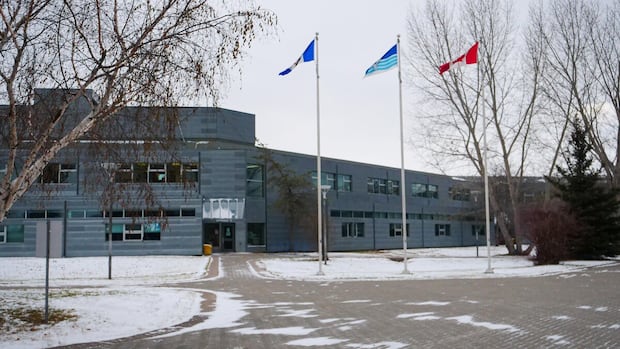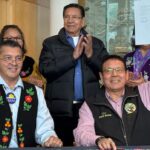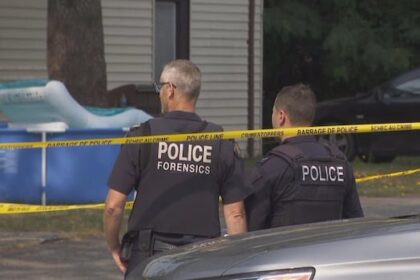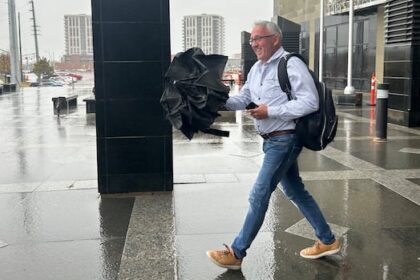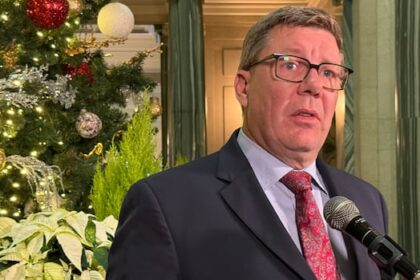NorthThat program was taught in Fort Smith and was suspended indefinitely in 2018. Eight years later, the territory’s education system is feeling that loss, with less opportunities for northern Indigenous to teach students from the communities they come from. School boards, and graduate of the program say the territory is losing potential teachers from communitiesLuke Carroll · CBC News · Posted: Nov 25, 2025 6:00 AM EST | Last Updated: 6 hours agoListen to this articleEstimated 6 minutesThe audio version of this article is generated by text-to-speech, a technology based on artificial intelligence.The Thebacha campus of Aurora College in Fort Smith, N.W.T. A teacher training program was offered at the campus up until 2017. Since then education bodies and people associated with the program say that the loss means prospective teachers from communities are missing out on an opportunity to work in the classroom. (Julie Plourde/Radio-Canada)In 2021, Joni Tsatchia was one of the last graduates of the teacher training program at Aurora College.This is a program she credits with allowing her to gain professional training while staying close to her support network in the N.W.T.That program was taught in Fort Smith and has been suspended since 2017 — eight years later, the territory’s education system is feeling that loss. The suspension leaves the N.W.T. as the only jurisdiction in Canada without a teacher training program.Education bodies and people associated with the program say without it, there are less opportunities for northern Indigenous people to teach students from the communities they come from. “I didn’t have to leave down south with my kids and leave my support system. I was still able to, you know, have both my grandmother’s support who were able to send me traditional food,” said Tsatchia, who is originally from Wekweètì’ and currently lives in Edzo.“I wasn’t too far to travel back [home] during the holidays. And the majority of my instructors were Indigenous.” Joni Tsatchia was one of the last graduates of Aurora College’s education program. She worked as a teacher for three years after graduating and still works in education. (Submitted by Joni Tsatchia)For Tsatchia, graduating from the program resulted in her working as a teacher for three years and working with youth she understood. “The students, they relate to you. They can identify themselves through you because, you know, you’re not southern, you’re Indigenous. You’re able to speak the language. You don’t have to immerse yourself in the culture because you already lived it,” said Tsatchia.Although she’s no longer a teacher, Tsatchia still works in education. Head of the program found out days after arriving that it would be cutValentina de Krom started as head of the program days before it was suspended, she worked at Aurora College up until 2023. She had just started the job days before Aurora College announced they would be pausing intake. “So that was a bit of a shock and I think it was for everyone that was involved in the teacher education program and, and in the community as well,” she said. The program was cut due to budgetary constraints. At the time of the suspension, the territory’s then-education minister pointed to a lack of enrolment and graduates as a reason. Still the decision was met with an intense pushback. Valentina de Krom was the head of Aurora College’s education program. She started in the role just days before it was suspended. (Submitted by Valentina de Krom)There was a review of the program in 2021 that recommended several changes to better support graduates and help them get employed. De Krom says the program was designed to be flexible to accommodate students who had other responsibilities, like kids or jobs. It allowed people from communities to still pursue their education without leaving the North. “You have teachers that are hired locally that understand the culture, understand the people, understand the children and the, you know, the needs of their community,” de Krom said. “Someone that’s being hired from the South might not necessarily have that or generally does not have that background.”De Krom said there’s also a socioeconomic impact to not having a teacher training program, in the cost of bringing up teachers from the South. According to an emailed statement attributed to Aurora College President Angela James, Aurora College is hoping to renew the program in 2027, but it’s dependent on funding. AnnaLee Mcleod teaching the Gwich’in Studies course to high school students in her classroom at Moose Kerr School. (CBC)Indigenous people lacking in teaching positions, school district saysSouhail Soujah, superintendent of the South Slave Divisional Education Council (SSDEC), wrote in an email that graduates of the Aurora College program have made significant contributions to the schools. But since its suspension the number of new northern Indigenous teachers has been affected. “We recently did an ad hoc survey looking at the number of Indigenous staff in the South Slave region,” he wrote. “The results showed that Indigenous people are well represented in support staff positions, but are significantly lacking in teaching positions.”Soujah says the SSDEC has representation on the Aurora College steering committee to help support the development of the prospective return of the program.Graham Arts is the assistant superintendent for curriculum and learning at Yellowknife Education District No. 1 (YK1).“I think it would be extremely helpful for there to be a teacher education program that’s based in the North, I can’t speak to the logistics of how that would happen from the perspective of any of our postsecondary institutions,” he said. “But yes, if we could have more people who are from the North, trained in the North so that they can engage in what is very rewarding career in the places where they like to live and love to learn, I think that could only be a plus for everyone.”In the absence of the program, Arts said YK1 has been undertaking multiple initiatives to get more Indigenous learning in the classroom. This includes bringing in language instructors, some with teaching credentials and others with the technical background and approval from the department of Education, Culture and Employment (ECE). Students from Angik School in Paulatuk, N.W.T., ice fishing. The activity was supported by an N.W.T. On-the-Land Collaborative grant. (Submitted by NWT On the Land Collaborative)It’s difficult to break down the actual numbers of northern Indigenous teaching hires since the closure of the program. None of the regional education bodies sent figures. Agata Gutkowska is a spokesperson for ECE.She wrote in an email that ECE is not responsible for determining which programs are offered by post-secondary institutions, nor are they responsible for hiring within education bodies.But Gutkowska did send data breaking down the number of certified self-identified northern Indigenous educators dating back to 2020. Certified just means authorization to teach in the N.W.T. not credentials obtained through post-secondary programs.It did show in total there are 96 self-identified northern Indigenous educators holding valid N.W.T. teaching certificates. That’s an increase from 72 northern Indigenous educators in 2024. But the data is hard to verify as Gutkowska explained in 2021, the Office of the Registrar began migrating to an online teacher certification system and self-identification became optional. ABOUT THE AUTHORLuke Carroll is a journalist with CBC News in Yellowknife. He can be reached at luke.carroll@cbc.ca.
Thursday, 5 Mar 2026
Canada – The Illusion
Search
Have an existing account?
Sign In
© 2022 Foxiz News Network. Ruby Design Company. All Rights Reserved.
You May also Like
- More News:
- history
- Standing Bear Network
- John Gonzalez
- ᐊᔭᐦᑊ ayahp — It happened
- Creation
- Beneath the Water
- Olympic gold medal
- Jim Thorpe
- type O blood
- the bringer of life
- Raven
- Wás’agi
- NoiseCat
- 'Sugarcane'
- The rivers still sing
- ᑲᓂᐸᐏᐟ ᒪᐢᑿ
- ᐅᑳᐤ okâw — We remember
- ᐊᓂᓈᐯᐃᐧᐣ aninâpêwin — Truth
- This is what it means to be human.
- Nokoma


